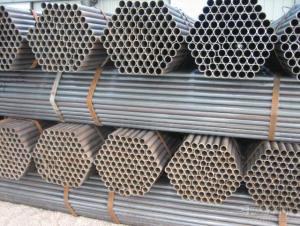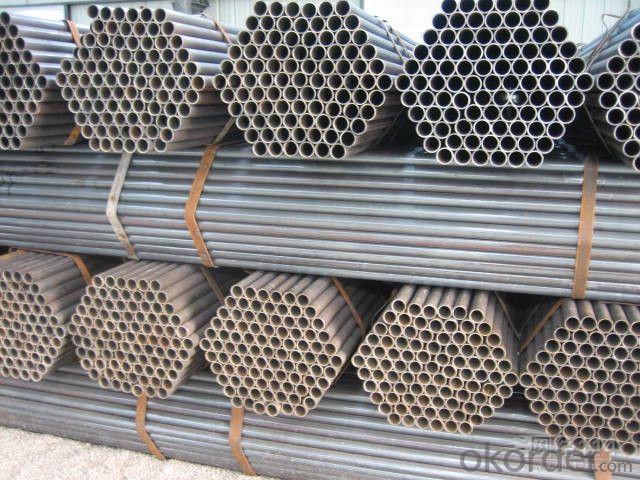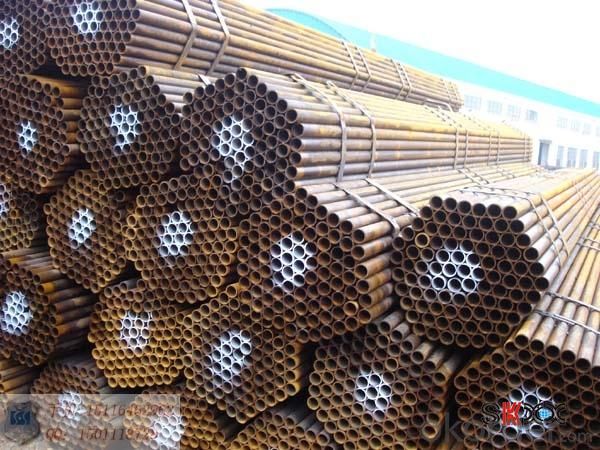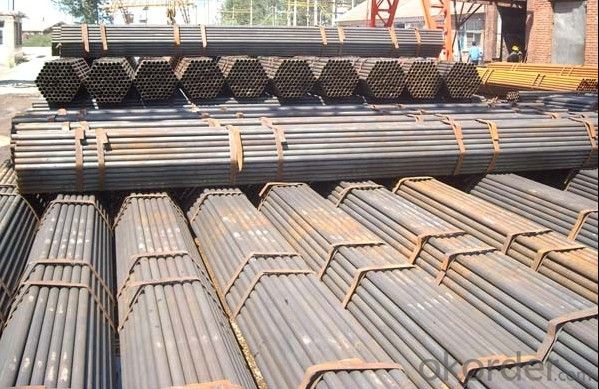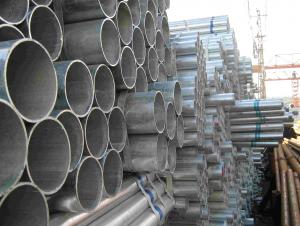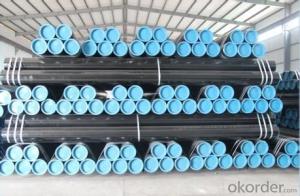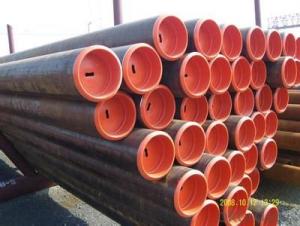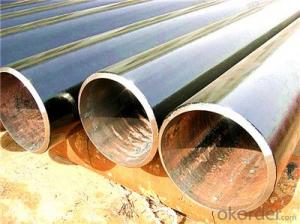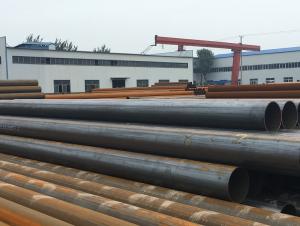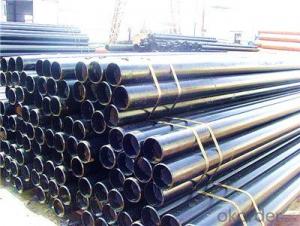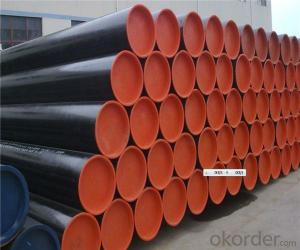Seamless stainless steel square tube hot sell
- Loading Port:
- Tianjin
- Payment Terms:
- TT or LC
- Min Order Qty:
- 10 kg
- Supply Capability:
- 6000 kg/month
OKorder Service Pledge
OKorder Financial Service
You Might Also Like
1、Structure of Seamless A192 ASTM Standard Steel Tube :
Seamless A192 ASTM Standard Steel Tube is to be used for conveying gas, water, and petroleum foroil and natural gas industries. And used for structural steel pies purpose. As the manufacturing process does not include any welding, seamless pipes are perceived to be stronger and more reliable. Historically seamless pipe was regarded as withstanding pressure better than other types, and was often more easily available than welded pipe.
2、Main Features of Seamless A192 ASTM Standard Steel Tube :
• High manufacturing accuracy
• High strength
• Small inertia resistance
• Strong heat dissipation ability
• Good visual effect
• Reasonable price
3、Seamless A192 ASTM Standard Steel Tube ,Specification:
Standard | GB, DIN, ASTM ASTM A106-2006, ASTM SPEC 5CT-2007 |
Grade | 10#-45#, 16Mn 10#, 20#, 45#, 16Mn |
Thickness | 8 - 33 mm |
Section Shape | Round |
Outer Diameter | 133 - 219 mm |
Place of Origin | Shandong, China (Mainland) |
Secondary Or Not | Non-secondary |
Application | Hydraulic Pipe |
Technique | Cold Drawn |
Certification | API |
Surface Treatment | factory state or painted black |
Special Pipe | API Pipe |
Alloy Or Not | Non-alloy |
Length | 5-12M |
Outer Diameter | 21.3-610mm |
Grade | 20#, 45#, Q345, API J55, API K55, API L80, API N80, API P110, A53B |
Standard | ASME, ASTM |
1) Material:20#(ASTM A 106/A53 GRB.API5LGRB,GB),45#,16Mn,10#.
2) Specification range:OD:21.3-610mm,WT:6-70mm,length:6-12m or according to the requirement of clients.
3) Excutive standards:GB,ASME API5L.ASTM A 106/A53,Despite of the above standards,we can also supply seamless steel pipe with standard of DIN,JIS,and so on,and also develop new products according to the requirements of our clients!
4) Surface:black lacquered,varnish coating or galvanized.
5) Ends:Beveled or square cut,plastic capped,painted.
6) Packing:bundles wrapped with strong steel strip,seaworthy packing.
4、Packaging & Delivery
Packaging Details: | seaworthy package,bundles wrapped with strong steel strip |
Delivery Detail: | 15-30days after received 30%TT |
5、FAQ of Seamless A192 ASTM Standard Steel Tube :
①How is the quality of your products?
Our products are manufactured strictly according to national and internaional standard, and we take a test
on every pipe before delivered out. If you want see our quality certifications and all kinds of testing report, please just ask us for it.
Guaranteed: If products’ quality don’t accord to discription as we give or the promise before you place order, we promise 100% refund.
②How about price?
Yes, we are factory and be able to give you lowest price below market one, and we have a policy that “ for saving time and absolutely honest business attitude, we quote as lowest as possible for any customer, and discount can be given according to quantity”,if you like bargain and factory price is not low enough as you think, just don’t waste your time.Please trust the quotation we would give you, it is professional one.
③Why should you chose us?
Chose happens because of quality, then price, We can give you both.Additionally, we can also offer professional products inquiry, products knowledge train(for agents), smooth goods delivery, exellent customer solution proposals.Our service formula: good quality+good price+good service=customer’s trust
SGS test is available, customer inspection before shipping is welcome, third party inspection is no problem.
6、 Seamless A192 ASTM Standard Steel Tube : Images:
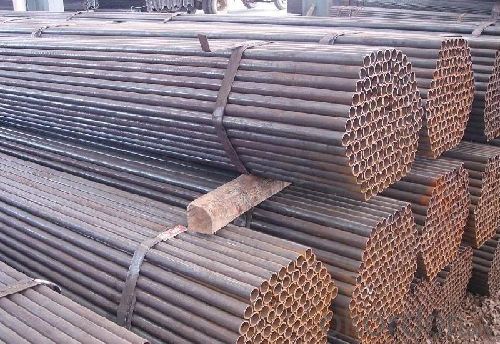
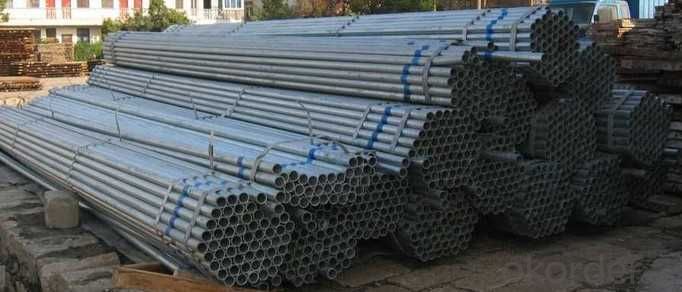
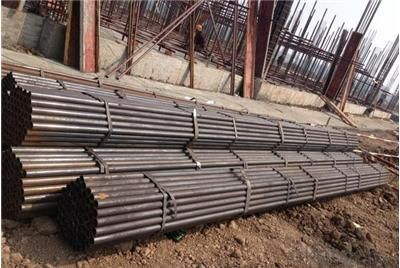
- Q: Are steel pipes suitable for use in coastal areas?
- Yes, steel pipes are suitable for use in coastal areas. Steel is highly resistant to corrosion and can withstand the harsh environmental conditions typically found in coastal regions, such as saltwater spray and high humidity. Additionally, steel pipes offer excellent structural strength, making them well-suited for various applications including marine construction, offshore oil and gas platforms, and coastal infrastructure projects.
- Q: What are the environmental impacts of steel pipe production?
- The environmental impacts of steel pipe production include the extraction and processing of raw materials, such as iron ore and coal, which contribute to deforestation, habitat destruction, and air and water pollution. The manufacturing process also emits greenhouse gases and other pollutants, contributing to climate change and air pollution. Additionally, the disposal of waste materials and the potential for leaks or spills during transportation can harm ecosystems and water sources.
- Q: What are the different types of threading on steel pipes?
- There are several different types of threading commonly used on steel pipes, including tapered, parallel, and buttress threading. Tapered threading is typically used for pipes that require a tight seal, as the threads gradually narrow towards the end of the pipe. Parallel threading, on the other hand, has threads that run parallel to the pipe's axis and is often used for pipes that need to be easily assembled and disassembled. Buttress threading is a combination of tapered and parallel threading, featuring one side with a tapered thread and the other side with a straight thread. This type of threading is often used for pipes that require both a secure connection and easy installation.
- Q: How do steel pipes handle vibrations?
- Steel pipes are known for their ability to handle vibrations effectively. Due to their strong and rigid nature, steel pipes can withstand various types of vibrations, including mechanical vibrations and seismic activities. The resilience of steel pipes is attributed to their structural integrity and strength. Steel pipes have high tensile strength, which enables them to resist deformation or breakage when subjected to vibrations. They are also resistant to fatigue, meaning they can endure repeated vibrations without experiencing any significant damage. This makes steel pipes ideal for applications that involve constant or cyclic vibrations, such as in industrial settings or for transportation of fluids through pipelines. Moreover, steel pipes have the advantage of being able to dampen vibrations due to their mass. The weight of the steel pipe helps absorb and dissipate the energy produced by vibrations, preventing excessive movement or oscillation. This damping effect contributes to the overall stability and durability of the pipe system. To further enhance the ability of steel pipes to handle vibrations, various measures can be taken. These may include the use of vibration isolators or dampers, which are devices designed to reduce the transmission of vibrations from the surrounding environment. Additionally, proper installation techniques and regular maintenance can help ensure that steel pipes continue to perform optimally under vibration-prone conditions. In summary, steel pipes are well-suited to handle vibrations due to their strength, resistance to fatigue, and ability to dampen vibrations. Their robustness and durability make them a reliable choice for applications where vibrations are a concern, ensuring the safe and efficient transport of fluids or materials.
- Q: How are steel pipes used in the construction of nuclear power plants?
- Steel pipes are widely used in the construction of nuclear power plants for various critical applications. They are employed in the primary coolant system, where they carry and circulate the pressurized water or liquid metal coolant that transfers heat from the reactor core to the steam generator. Steel pipes are also utilized in the secondary coolant system, which transports the generated steam to drive the turbine for electricity production. Additionally, steel pipes are used for the construction of various auxiliary systems, such as the emergency cooling system or the ventilation system, ensuring the safe and efficient operation of nuclear power plants.
- Q: Can steel pipes be used for underground fuel storage systems?
- Yes, steel pipes can be used for underground fuel storage systems. Steel pipes are commonly used in underground fuel storage systems due to their strength, durability, and resistance to corrosion. They provide a reliable and long-lasting solution for storing fuel underground, ensuring that it remains secure and protected. Steel pipes are also able to withstand the pressure and weight of the fuel, making them a suitable choice for underground storage. Additionally, steel pipes can be easily welded and interconnected, allowing for flexibility in designing and constructing underground fuel storage systems. However, it is important to ensure that the steel pipes used for underground fuel storage systems are properly coated or lined to prevent corrosion and protect the fuel from contamination. Regular inspections and maintenance are also necessary to identify and address any potential issues that may arise.
- Q: What's the difference between hot-rolled seamless steel tube and cold-rolled seamless steel tube?
- Cold rolled seamless steel pipe (DIAL) in general, steel pipe for low and medium pressure boiler tube, high-pressure boiler steel pipe, alloy steel pipe, stainless steel pipe, oil cracking tube and other steel tube, including carbon thin-walled steel, alloy thin-walled steel, stainless steel, thin steel tube.
- Q: How are steel pipes used in the renewable energy industry?
- Steel pipes are used in the renewable energy industry for various purposes such as transporting fluids, gases, and steam in thermal power plants, geothermal installations, and solar thermal systems. They are also utilized in the construction of wind turbine towers and the transmission of electricity from renewable energy sources.
- Q: What is the difference between seamless and welded steel pipes?
- The main difference between seamless and welded steel pipes lies in their manufacturing process. Seamless pipes are made by piercing a solid billet of steel, while welded pipes are formed by rolling steel sheets and then welding them together. This difference in production methods results in varying levels of strength, durability, and cost. Seamless pipes are generally stronger and more reliable, as they have no welded seams that can weaken the pipe. However, they are also more expensive to produce. On the other hand, welded pipes are more cost-effective but may have weaker points at the welded seams. Ultimately, the choice between seamless and welded steel pipes depends on the specific application and requirements of the project.
- Q: What are the different pipe fittings used with steel pipes?
- Some of the different pipe fittings used with steel pipes include elbows, tees, couplings, unions, reducers, flanges, and caps.
Send your message to us
Seamless stainless steel square tube hot sell
- Loading Port:
- Tianjin
- Payment Terms:
- TT or LC
- Min Order Qty:
- 10 kg
- Supply Capability:
- 6000 kg/month
OKorder Service Pledge
OKorder Financial Service
Similar products
Hot products
Hot Searches
Related keywords
